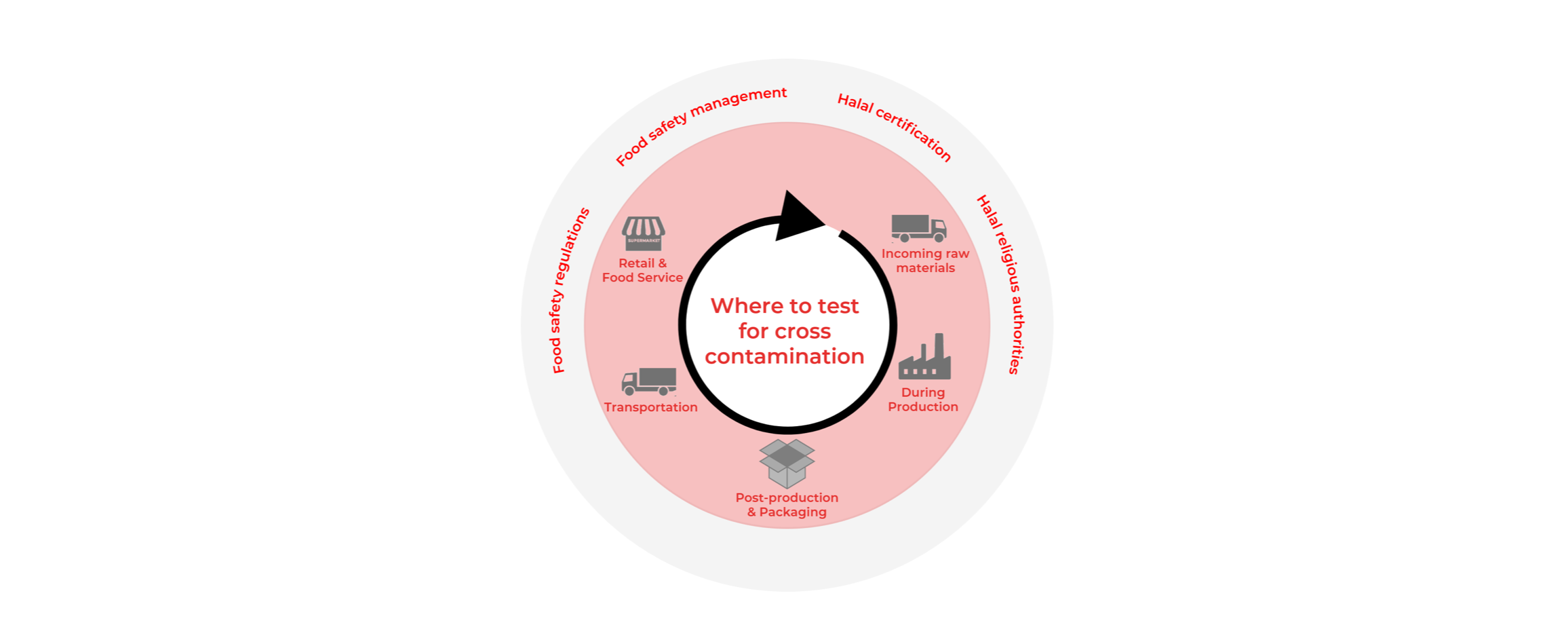When high-profile food fraud or food contamination incidents occur, the integrity and governance of our global food ecosystems are called into question. When these incidents occur in faith-based sectors like Halal, it raises significant concerns and anxiety as devout Muslims must ensure the foods they consume are permissible by Islamic Law (2).
Halal food is subject to the risks and vulnerabilities of different types of food frauds. But more specifically, Halal foods must be free from various types of cross-contamination from products considered as Haram (not permitted).
Unintentional Cross-Contamination
Cross-contamination by pathogenic microorganisms (e.g., Salmonella sp., Listeria, Escherichia) can lead to illness, hospitalizations, and death. Outside of the pathogenic cross-contamination of foods, one of the most egregious cross-contamination forms in Halal food is from non-pathogenic substances like pig derivatives (e.g., pork, blood, gelatin, or lard). Halal food integrity must be maintained from sourcing of ingredients to consumption to reduce this risk and eliminate both pathogenic and non-pathogenic cross-contamination vulnerabilities.
Read our full article to read more about how fraud and contamination affect the Halal supply chain.
Halal Food Integrity
Halal food integrity is contextual to its compliance with religious teachings and modern practices in food safety. Islam guides its followers to consume Halal and wholesome products only. With the modernization of retail and the globalization of Halal food supply ecosystems, Muslims must place blind trust in food business operators and regulations in third countries where primary production and processing of Halal foods occurs. The lack of transparency into these global food ecosystems poses a challenge. It can negatively impact business-to-business and consumer trust.
Halal Assurance Schemes
Halal assurance schemes are relatively new and firms may rely on laboratory testing that may take several days before results are known. Assurance schemes and testing protocols may differ significantly across Halal food-producing nations and Halal food processing firms (3). Furthermore, slaughterhouses and food processing factories may process both Halal (permitted) and Haram (forbidden) in the same facility.
SwissDeCode Porcine Detection Solution
SwissDeCode’s DNAFoil Pork provides results within 40 minutes and can be used on production lines before the processing starts or used to sample and test during long production runs and in quality assurance with finished goods. Early detection of porcine contamination can significantly benefit food security as the food produced or processed does not have to be destroyed. Instead, food that is cross-contaminated with porcine is perfectly safe to consume by non-Muslims. These foods can be re-routed and packaged for non-Halal segments.
Download or full article to learn more about how you can ensure the integrity of Halal Foods with rapid testing.

References
1. International Trade Center (2015). Halal Goes Global. https://www.intracen.org/uploadedFiles/intracenorg/Content/Publications/Halal_Goes_Global-web(1).pdf
2. Saifudin et al. (2018). Reviewing the Contributors towards the Performance of the New Islamic Supply Chain Model
3. Tan et al. (2017). The impact of external integration on halal food integrity